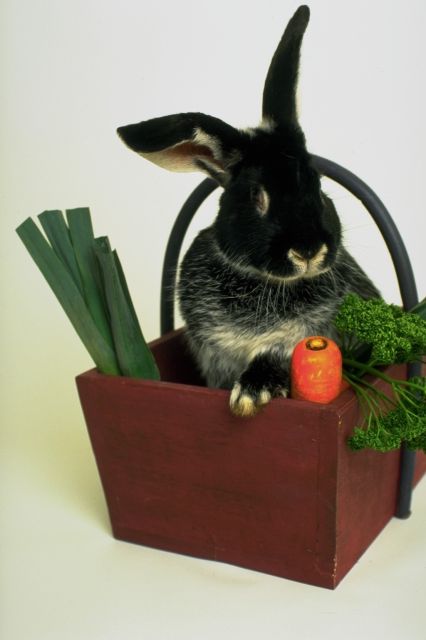| Home | True Stories | Pictures and Fun | Rabbit Breeds |


Bunny's are a very fragile animal. They need to be handled delicately. A bunny will make a very good house pet and adapt to various homestyles and surroundings. While they can be challenging pets, the rewards of having a happy, healthy house rabbit are well worth the effort. Most generally, they will even adjust to other animals. When well taken care of, rabbits can easily live 7-12 years. While they can be challenging pets, the rewards of having a happy, healthy house rabbit are well worth the effort.
Bunny's are domesticated prey animals. They are keenly aware of their enviornment and can be easily stressed by sudden motion or loud noises. Care should be taken to set up your bunny's play and resting spaces to provide a balance between too much noise and too little opportunity for play and interaction with the family. An alternative space may be needed for the bunny when lots of folks come by to visit or the kids have a party. Bunnies communicate through a variety of ways. They seldem vocalize, but may occasionally snort or grunt if annoyed. A very frightend rabbit screams like a tea kettle. Body language is more important. They will race around or leap in the air, flop over on their side or back or even stretch flat out. When a bunny places his or her chin on the ground, it usually is asking to be petted. If they are approached too abruptly, they may rear up or sometimes even bite so caution is advisable by placing your hand above where they can see your hand.
The most important element in the rabbit's diet is hay. Hay provides the fiber needed to keep the digestive tract working properly. Unlimited amounts of fresh hay should be provided on a daily basis. Because rabbit's digestive systems are designed to derive nourishment from foraging on low-nutrient food, they can actually be damaged by foods high in protein, fat and calories. Fresh leafy greens should be offered daily. Carrots should be limited to 1/2 a day depending on the size of the rabbit because they are high in sugar. Rabbit pellets should be fed in moderation to help provide a well-rounded diet. It is best not to feed them any "human treats" such as cereal, bread, crackers and etc. Good treats such as a thin slice of apple or a couple of raisins are okay. All processed treats you purchase in pet stores should be avoided. The extra fat and calories can compromise your rabbit's digestive system and internal organs and can make them sick.
